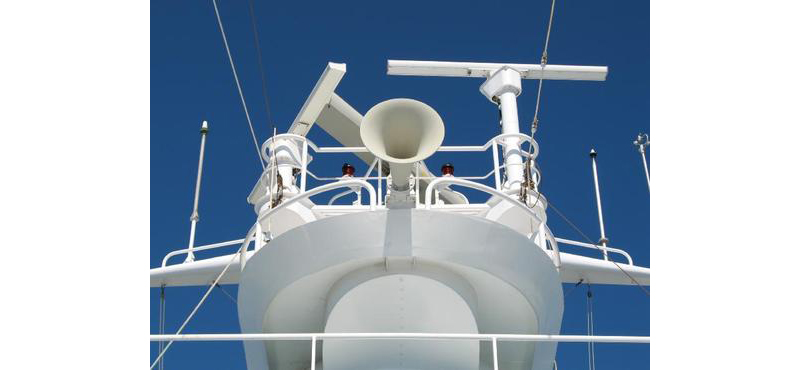Why is that fellow blowing his horn at you? Is he being rude or is he trying to communicate?
Most recreational boaters are unfamiliar with the meaning of horn signals. Under the United States Coast Guard Navigation Rules, however, recreational boaters are required to learn and understand horn signals.
There are many signals for many different situations, but let’s discuss the very basic signals. Under the Inland Rules, two power driven vessels in sight of one another and meeting or crossing within a half-mile of one another must sound maneuvering signals on their whistles or horns.
Although horn signals are required, in real life the rules are seldom followed by recreational boaters, except perhaps in overtaking situations. But it would be a safer day on the water if horn signals were utilized by all boaters at all times.
Here are the basics:
One short blast of your horn tells the other vessel “I intend to leave you on my port side.”
Two short blasts tells the other vessel “I intend to leave you on my starboard side”.
These basic signals can be very helpful on the busy intracoastal waterway. In many situations, a collision can be avoided simply by letting the other vessel know your intentions. The problem is the other vessel may or may not understand what you are trying to tell him because the skipper may have no clue as to the meaning of horn blasts, therefore always keep a careful watch to see if a risk of collision is presented.
If you get into a situation where another vessel is in sight and there is a danger of collision or if you are in doubt as to another vessel’s actions or intentions, or if there is disagreement over passing signals, then utilize the danger signal which is five short blasts of your horn or whistle. That usually gets their attention. Always continue to monitor the course and speed of other vessel and take appropriate actions to avoid collision.
The hiring of a lawyer is an important decision that should not be based solely upon advertisements. This website is designed for general information only. The information presented at this site should not be construed to be formal legal advice nor the formation of a lawyer/client relationship. Please do not send any confidential information to us until such time as an lawyer/client relationship has been established. The Law Office of Clinton W. Lanier, Esq., represents individuals and businesses throughout Florida.

